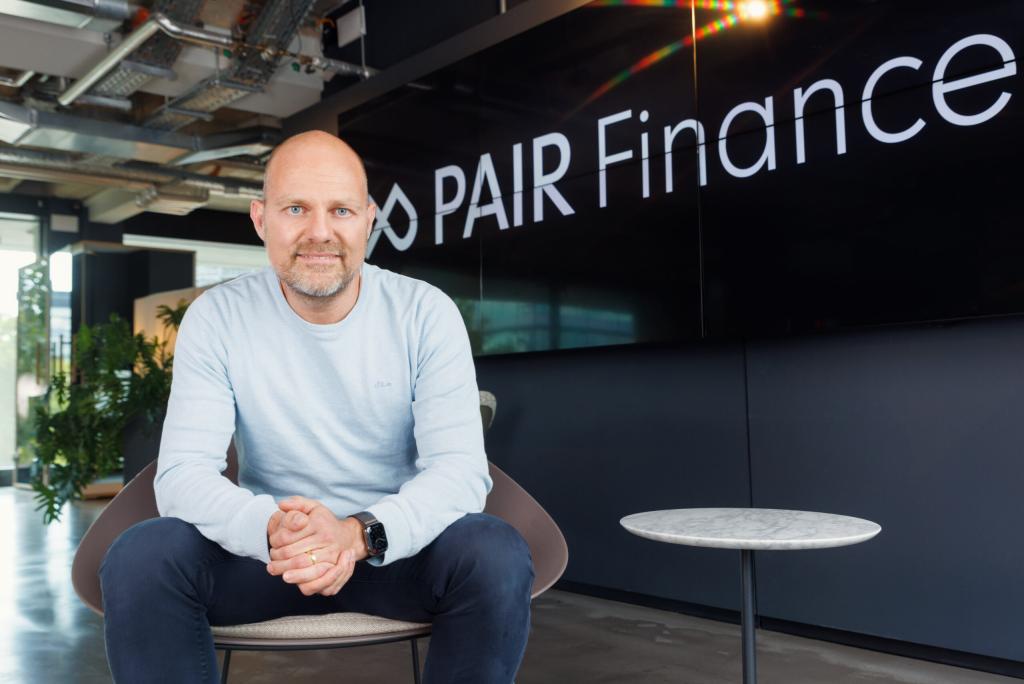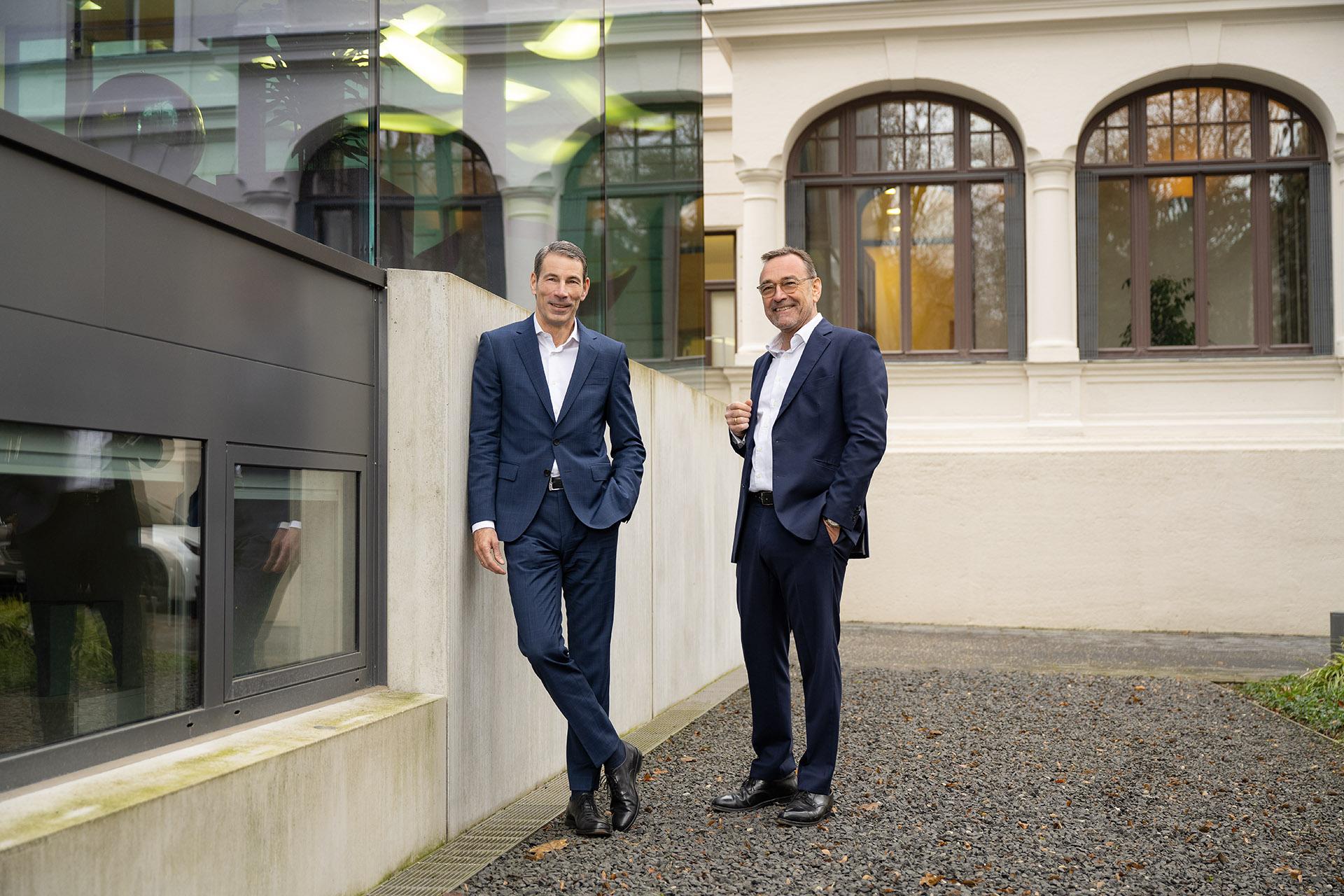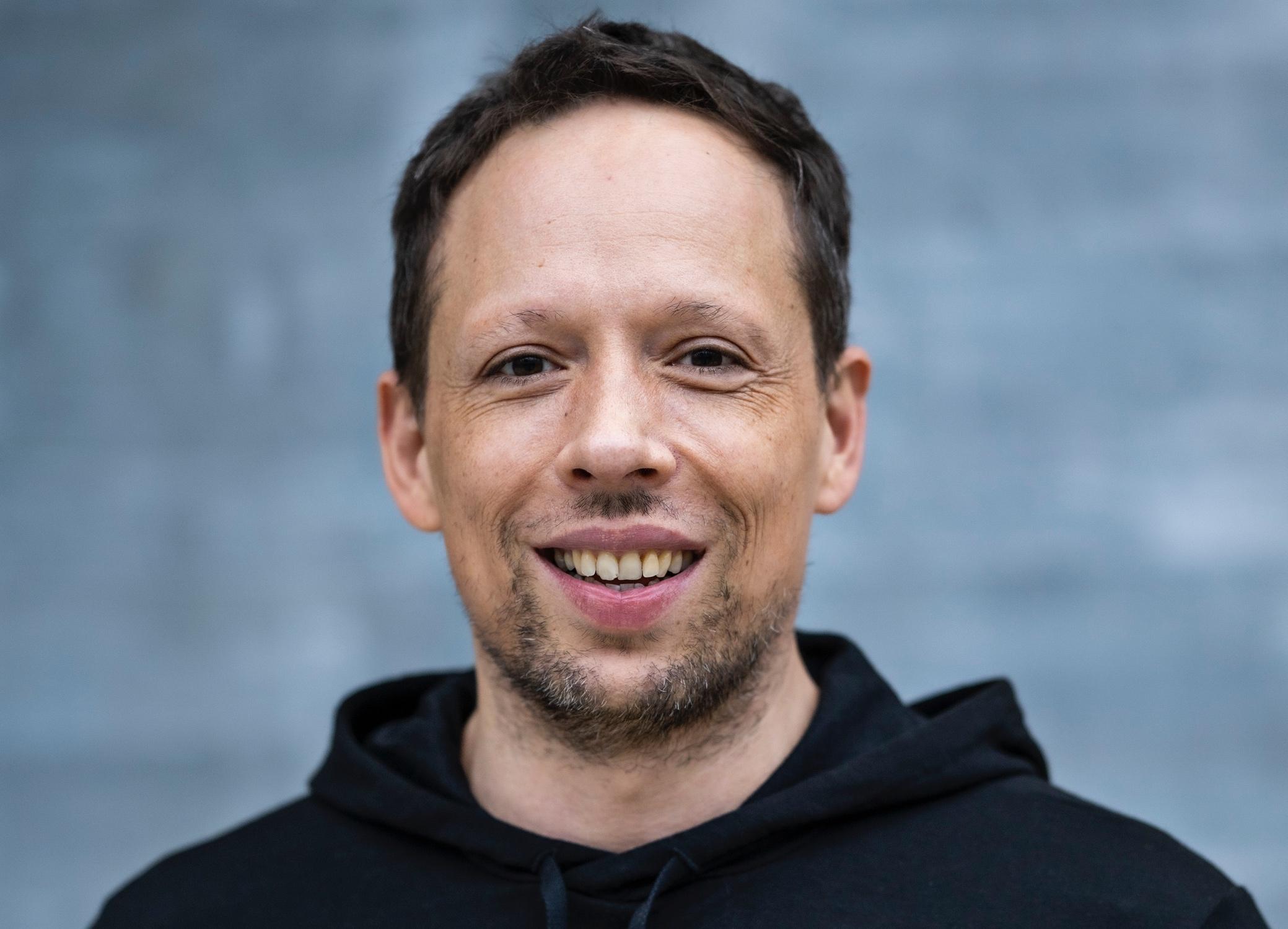"A private equity investor brings out the other guns"

Stephan Stricker has achieved a multi-million exit with Pair Finance. In this interview, he talks about tough negotiations, payouts to employees and what his wife thinks when he goes to bed at night.
Stephan Stricker sets the tone straight away. "You ask the questions, I'm at your side," says the man with the gray sweater and the apparently irrepressible urge to make a difference. Barely a week has passed since he pulled off a more than impressive multi-million exit with his debt collection start-up Pair Finance. Since then, Pollen Street Capital has owned around 60 percent of Pair Finance, with Zalando, Finleap and the management each holding around a third of the rest. And now?
Mr. Stricker, Pollen Street is said to have paid 100 million euros for 60 percent of Pair Finance. Important first question: How were the celebrations?
The signing was last Friday, we spent eight hours at the notary's office. After that we took a breather. On Tuesday, before we announced it, we also inaugurated the employees. But the big celebration is still to come.
Are you the party type or do you want to get straight on with it?
I can already see a lot of things I could tackle. Maybe that's why some friends have advised me: "Enjoy this moment now. Don't throw yourself into the next project and topic." I'll try to do the same for the next few days and draw strength from my success for the upcoming topics on my agenda, because my fingertips are itching again.
Did you actually give out a lot of employee shares before the exit?
I think it is extremely important to give employees a stake in a company at an early stage so that they also benefit from it if it is successful. We therefore issued virtual share options, or VSOPs, to all important core employees. And it was also very important to me in the negotiations with Pollen Street to ensure that these employees are now paid out in full or in part. They should receive their tribute for the great work they have done over the past few years. At the closing, I saw how much money went to the employees and I was very proud.
With Pollen Street, we now have a company at our side that can take us to the next level.
You actually wanted to find a new investor in 2021. Why was that?
We have grown extremely quickly in recent years, by more than 80% from 2020 to 2021 alone. We've also become profitable, which is extremely rare for start-ups at this stage - after all, we've only been around since 2016. At the same time, I realized that we need a new class of investors. The VCs and business angels who had supported us up to that point were great. Without them, we wouldn't be here today. With Pollen Street, we now have a company at our side that can take us to the next level.
They had already called off the search in 2021 because they couldn't find a suitable investor. What has changed?
Not that much. But we had two major hurdles in the search for an investor. The shareholders wanted us to have a triple-digit valuation and we had to say to many interested parties: We won't talk to you before then. And the other hurdle was me. I was extremely critical and skeptical of every potential investor because I absolutely wanted to stay on board and continue to run the baby. I had to find a VC or private equity investor who I enjoyed working with and who I was convinced wanted to help us internationalize and professionalize. We didn't find one in 2021, but we did in 2022 with Pollen Street. The negotiations were of course an intensive process for all sides.
Until then, Finleap owned 40 percent and the rest belonged to many different investors. So they were used to negotiations.
One thing I quickly realized was that a private equity investor uses different tactics. They look much more closely at every key financial figure and the discussions with the management are much more intensive than I was used to with investors from the VC scene or business angels. In negotiations, completely different cuffs are applied and each side has to be prepared to make compromises. That was me, that was Pollen and that was Finleap and that's why we can now celebrate this success.
From now on, I want to expand into another country every year, into the Benelux countries and also into France.
The current market situation is not exactly exhilarating for an exit. Has that depressed the valuation?
Not at all. The current situation makes it particularly difficult for companies that are not yet profitable. But that's us, which is why the mood on the market hasn't hit us that hard. What's more, two years ago, Pair Finance was not even ready for such a deal. It is only in the last 24 months that we have grown so strongly and become profitable. So the timing is just right.
What is the plan now?
We are already growing strongly in Germany, and last year we entered Austria. From now on, I want to expand into another country every year, into the Benelux countries and also into France. I believe that with our platform we have a product that no one else in a traditional industry has.
Are you not afraid or worried?
An entrepreneur shouldn't be afraid. Of course I worry a lot or worry that something is not going fast enough. If you ask my wife how many thoughts I go to bed with, she'll say: he thinks about pair finance 24/7. And that would be true. But these worries are not worries in the true sense of the word and are not existentially threatening: How can we implement a certain product faster, win over a customer faster or expand into another country faster? Our biggest enemy is time. There is a lot of market potential and we want to tap into it.
Thank you very much for the interview.
About the person: Stephan Stricker (40) is the founder and CEO of Pair Finance, Germany's leading fintech for debt collection. Prior to Pair Finance, Stephan Stricker held management positions in the development of successful AdTech companies in San Francisco/USA and Sao Paulo/Brazil. From 2010 to 2013, he worked for KMPG in the areas of strategy consulting and restructuring. Stephan Stricker studied business administration at the Universities of Sydney and Münster.

Newsletter
Startups, stories and stats from the German startup ecosystem straight to your inbox. Subscribe with 2 clicks. Noice.
LinkedIn ConnectFYI: English edition available
Hello my friend, have you been stranded on the German edition of Startbase? At least your browser tells us, that you do not speak German - so maybe you would like to switch to the English edition instead?
FYI: Deutsche Edition verfügbar
Hallo mein Freund, du befindest dich auf der Englischen Edition der Startbase und laut deinem Browser sprichst du eigentlich auch Deutsch. Magst du die Sprache wechseln?

























